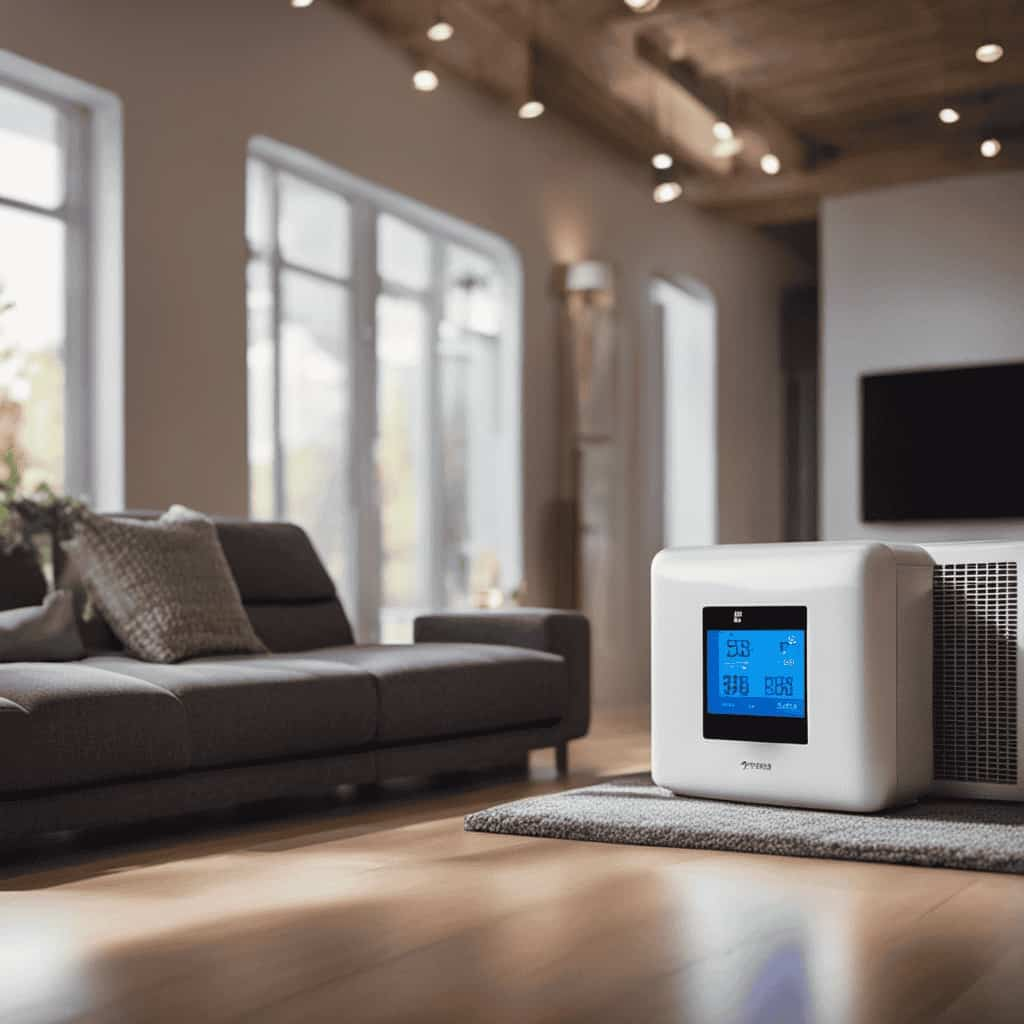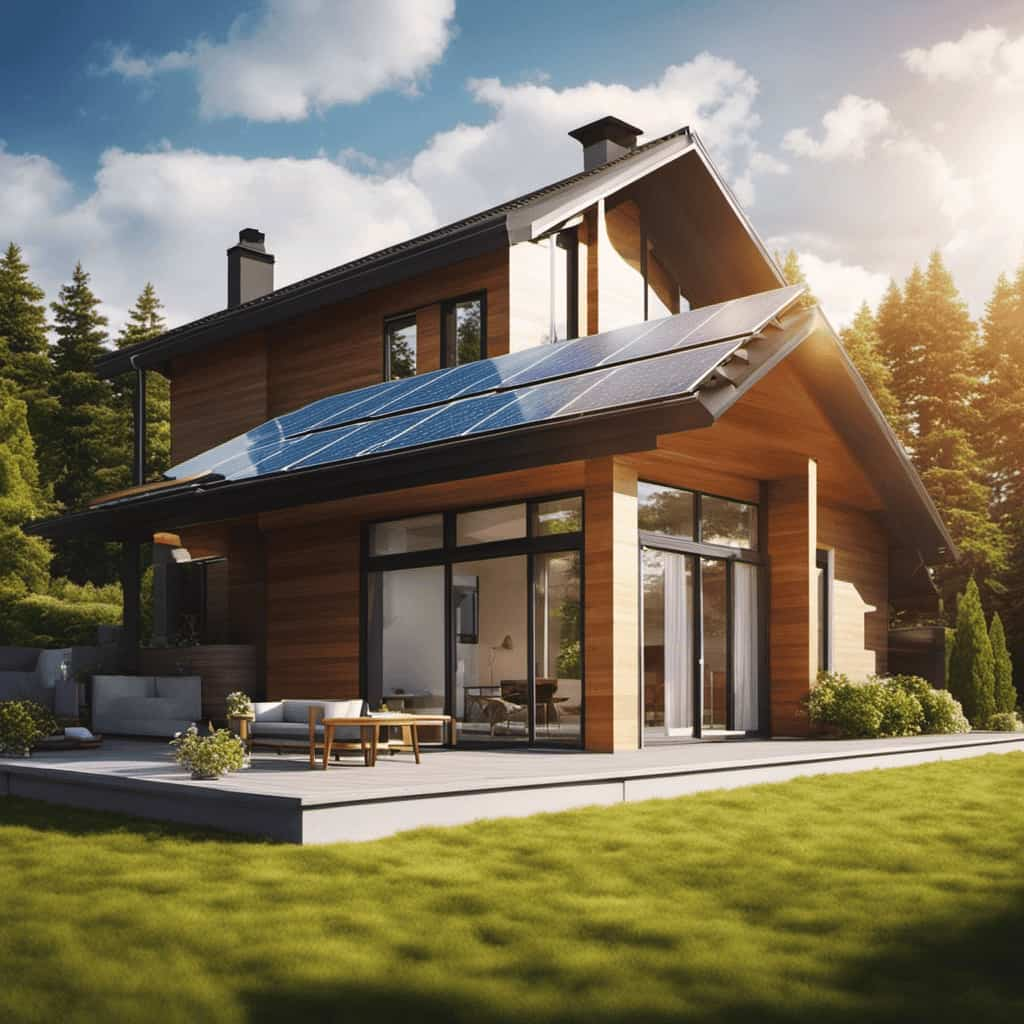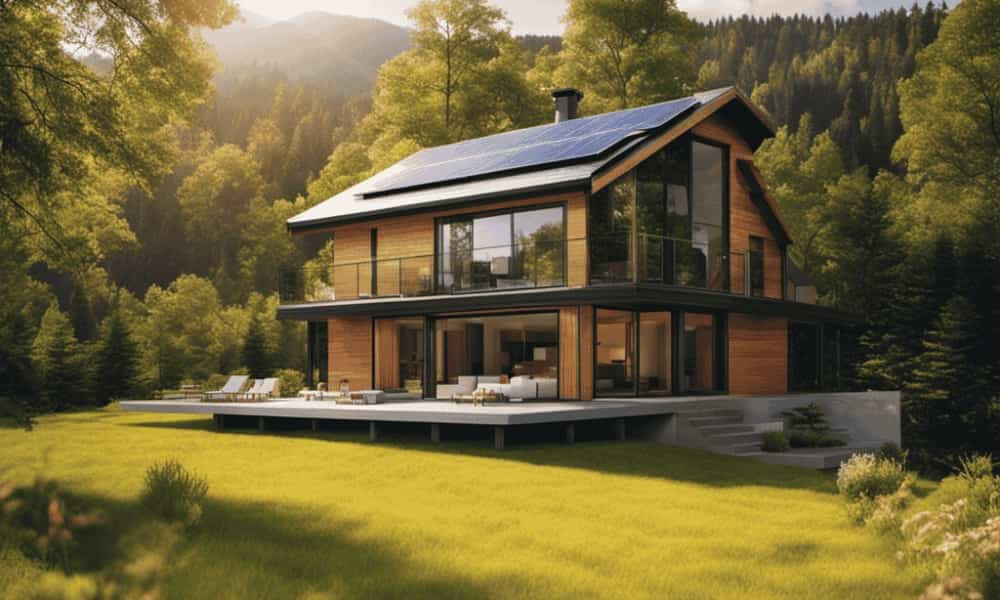Do you want to stay warm and comfortable in your home during the winter? You’re in luck! Check out our comprehensive guide on efficient heat pump HVAC systems for cold climates.
Our detailed and informative article will walk you through the benefits, factors to consider, and maintenance tips for these energy-saving systems.
Say goodbye to high energy bills and hello to a cozy, liberated home.
Let’s dive in and discover the power of heat pump HVACs!

Key Takeaways
- Heat pump HVAC systems offer significant cost savings and have a positive environmental impact.
- Proper evaluation and sizing of the system is crucial for optimal performance.
- Regular maintenance and optimization of thermostat settings can maximize energy efficiency.
- Common issues with heat pump HVACs in cold climates include insufficient heating, low airflow, defrosting problems, and ways to improve performance.
Benefits of Heat Pump HVAC Systems in Cold Climates
We love the efficiency of heat pump HVAC systems in cold climates. These systems offer significant cost savings and have a positive environmental impact.
Heat pumps work by extracting heat from the outside air or ground and transferring it indoors, even in temperatures as low as -15 degrees Fahrenheit. This means that instead of relying on fossil fuels for heating, heat pump HVAC systems use electricity to move heat, resulting in reduced energy consumption and lower utility bills.
Additionally, heat pumps produce fewer greenhouse gas emissions compared to traditional heating systems, making them an eco-friendly choice for those who desire to reduce their carbon footprint.
When considering an efficient heat pump HVAC system, it’s important to take into account factors such as size, energy efficiency ratings, and the availability of renewable energy sources to power the system. By carefully considering these factors, individuals can ensure they choose a heat pump HVAC system that maximizes both cost savings and environmental benefits.

Factors to Consider When Choosing an Efficient Heat Pump HVAC
There are three key factors to consider when choosing an efficient heat pump HVAC: size, energy efficiency ratings, and availability of renewable energy sources.
-
Size: It’s crucial to select the right-sized heat pump HVAC system for your space. A unit that’s too small will struggle to meet your heating and cooling needs, while an oversized unit will cycle on and off frequently, wasting energy and reducing comfort. Proper sizing ensures optimal performance and energy efficiency.
-
Energy Efficiency Ratings: Look for heat pump HVAC systems with high energy efficiency ratings, such as the Seasonal Energy Efficiency Ratio (SEER) and the Heating Seasonal Performance Factor (HSPF). Higher ratings indicate better energy-saving features, resulting in lower utility bills and reduced environmental impact.
-
Availability of Renewable Energy Sources: Consider the availability of renewable energy sources in your area, such as solar or geothermal power. Installing a heat pump HVAC system that can utilize these energy sources can further enhance energy efficiency and reduce dependence on fossil fuels.
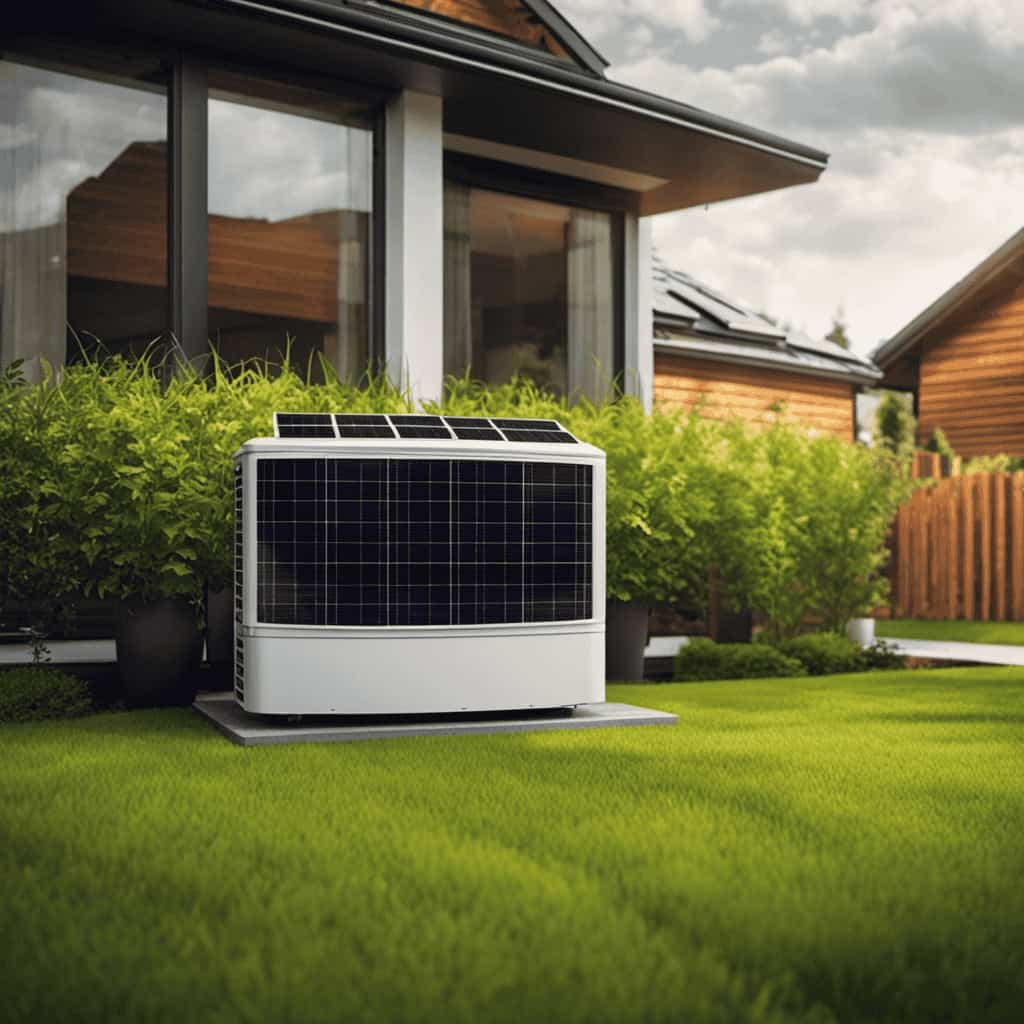
When making your decision, carefully evaluate these factors to ensure you choose an efficient heat pump HVAC system that will meet your heating and cooling needs while minimizing energy consumption and environmental impact.
How to Maximize Energy Efficiency With Heat Pump HVACs
To maximize energy efficiency with heat pump HVACs, it’s important to implement regular maintenance, optimize thermostat settings, and properly insulate your home. When it comes to heat pump HVAC installation, there are a few key energy-saving tips to keep in mind.
First, ensure that your heat pump is properly sized for your home to avoid wasting energy. Additionally, consider installing a programmable thermostat to optimize temperature settings and reduce energy consumption when you’re not at home. Proper insulation is also crucial in preventing heat loss and maximizing energy efficiency. Make sure your home is well-insulated, paying extra attention to windows, doors, and attic spaces.
By following these energy-saving tips for heat pump HVACs, you can significantly reduce your energy consumption and lower your utility bills.

Now, let’s move on to maintenance tips for long-lasting and efficient heat pump HVACs.
Maintenance Tips for Long-lasting and Efficient Heat Pump HVACs
Let’s start by discussing how to properly maintain your heat pump HVAC to ensure its longevity and efficiency. Here are three essential maintenance tips to keep your heat pump running smoothly and extend its lifespan:
-
Regularly clean or replace air filters: Dirty filters can restrict airflow, making your heat pump work harder and less efficiently. Check your filters monthly and clean or replace them as needed.
-
Keep the outdoor unit clear of debris: Leaves, twigs, and other debris can accumulate around the outdoor unit, hindering its performance. Regularly inspect and clean the area around the unit to ensure proper airflow.

-
Schedule professional maintenance annually: Hiring a professional technician to inspect and service your heat pump once a year is crucial. They can clean the coils, check refrigerant levels, tighten electrical connections, and identify any potential issues before they become major problems.
Following these maintenance tips won’t only prolong your heat pump’s lifespan but also ensure its efficient operation, keeping you comfortable all year round.
Common Issues and Troubleshooting for Heat Pump HVACs in Cold Climates
We often encounter common issues with heat pump HVACs in cold climates and need to troubleshoot them effectively. Some of the most common issues include insufficient heating, low airflow, and defrosting problems. To address these issues, there are several troubleshooting steps you can take. Firstly, check the heat pump HVAC installation to ensure it is properly set up and the ductwork is sealed. Additionally, regularly clean or replace the air filters to improve airflow. If the heat pump is not defrosting properly, check the defrost control and ensure it is functioning correctly. Lastly, consider these tips for improving heat pump HVAC performance in cold climates: insulate the outdoor unit, use a programmable thermostat, and schedule regular maintenance. By following these troubleshooting steps and tips, you can ensure your heat pump HVAC operates efficiently in cold climates.
| Common Issues and Troubleshooting for Heat Pump HVACs in Cold Climates | |
|---|---|
| Issue | Troubleshooting Steps |
| Insufficient Heating | – Check temperature settings and adjust if necessary |
- Inspect and clean the outdoor unit
- Ensure proper insulation of the indoor unit |
| Low Airflow | – Check and clean air filters - Inspect ductwork for leaks or blockages
- Verify proper blower motor operation |
| Defrosting Problems | – Check and clean the outdoor unit coils - Verify proper operation of the defrost control
- Ensure proper airflow around the outdoor unit |
Frequently Asked Questions
Can Heat Pump HVAC Systems Be Used in Areas With Extremely Cold Climates?
Yes, heat pump HVAC systems can be used in areas with extremely cold climates. Their efficiency and performance are optimized to withstand low temperatures and provide heating even in subzero conditions.

Are There Any Incentives or Rebates Available for Installing a Heat Pump HVAC System in a Cold Climate?
Yes, there are incentives and rebates available for installing a heat pump HVAC system in a cold climate. These incentives are designed to encourage energy savings and can help offset the initial cost of installation.
Can a Heat Pump HVAC System Be Used as the Sole Heating Source in a Home in a Cold Climate?
Yes, a heat pump HVAC system can be used as the sole heating source in a home in a cold climate. It is efficient in cold climates and cost-effective compared to other heating options.
How Does a Heat Pump HVAC System Perform in Terms of Noise Levels Compared to Traditional Heating Systems in Cold Climates?
In terms of noise levels, heat pump HVAC systems perform better than traditional heating systems in cold climates. They are designed to be quieter, providing a peaceful environment while still maintaining high energy efficiency.
Are There Any Specific Considerations for Installing a Heat Pump HVAC System in a Multi-Story Building in a Cold Climate?
When installing heat pumps in multi-story buildings in cold climates, there are specific considerations to ensure optimal energy efficiency. Proper insulation, zoning systems, and ductwork design are crucial to achieve effective heating and cooling throughout the building.
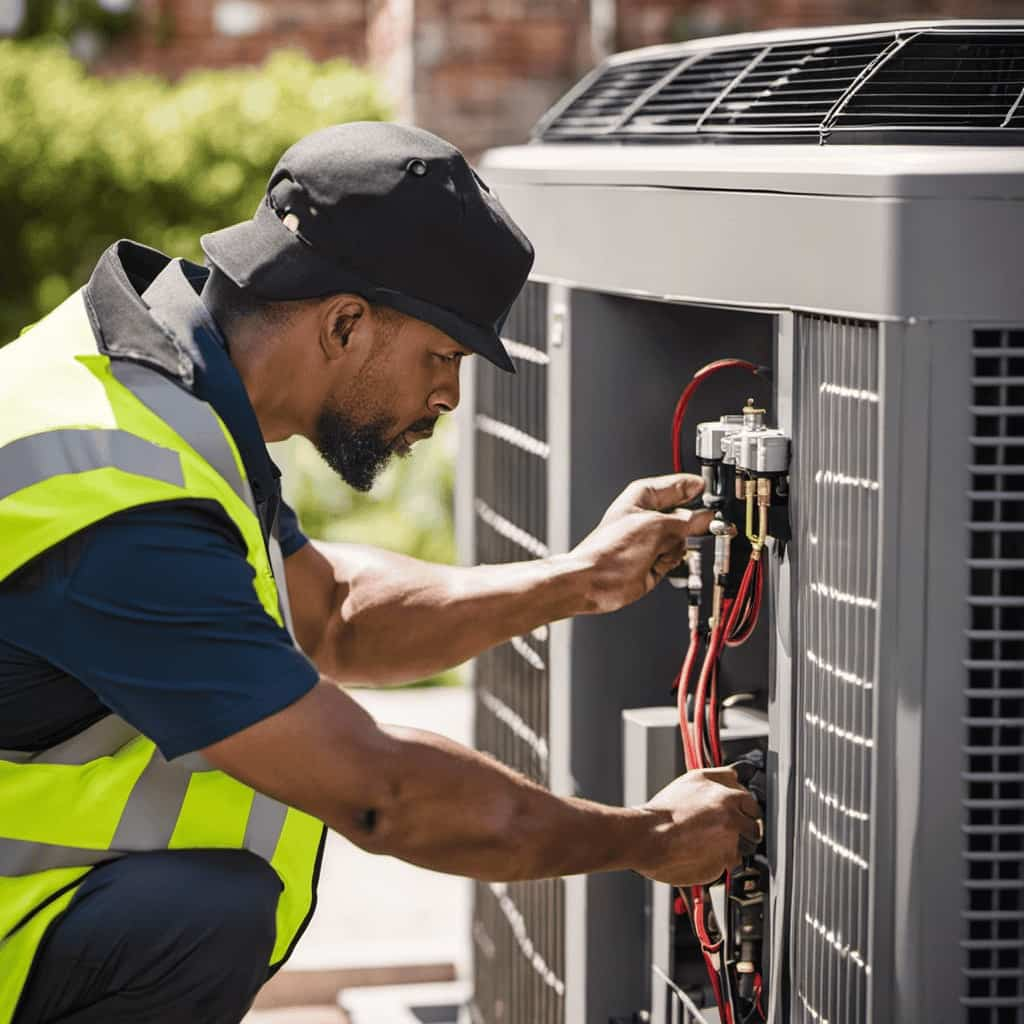
Conclusion
In conclusion, choosing an efficient heat pump HVAC system for cold climates is a wise investment for homeowners.
With careful consideration of factors such as size, efficiency, and proper maintenance, these systems can provide long-lasting comfort and energy savings.
Like a well-oiled machine, a heat pump HVAC efficiently battles the cold, giving you the warmth you need while keeping energy consumption in check.
So, make the switch and embrace the warmth of an efficient heat pump HVAC in your home.
